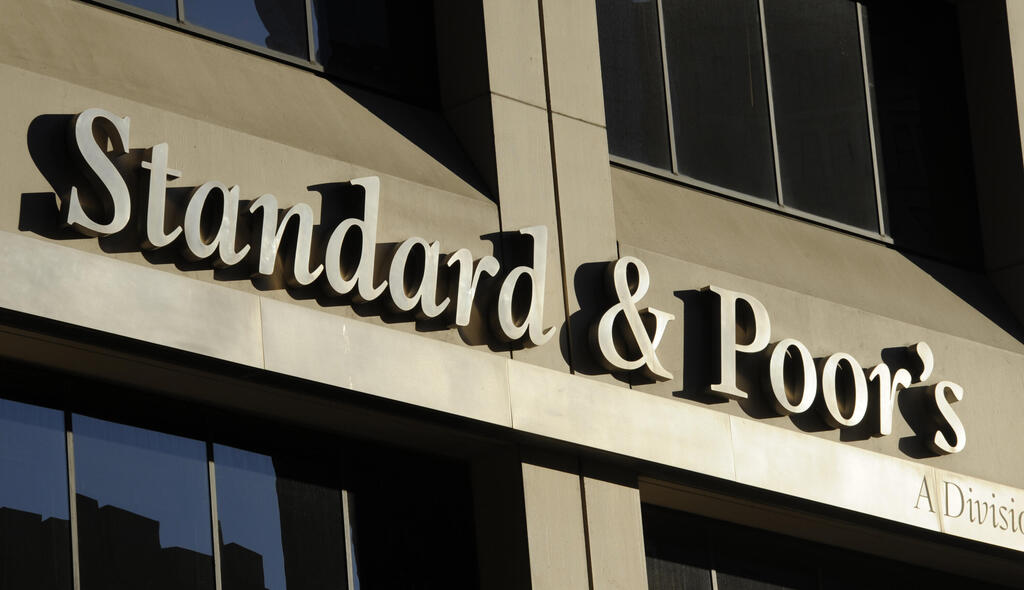Global credit rating agency S&P Global Ratings announced late Friday that it is maintaining Israel’s sovereign credit rating at A with a negative outlook, citing persistent concerns over the potential expansion of the war.
While affirming the rating, S&P warned that it could downgrade Israel within the next two years if ongoing military conflicts significantly impact the country’s economic growth, fiscal position or balance of payments beyond current expectations. Conversely, the agency said it may revise the outlook to positive if the likelihood of further military escalation decreases and broader security risks are reduced.
S&P economists, who recently held a series of meetings with senior Israeli officials—including representatives from the Finance Ministry, Bank of Israel, banking executives, industrial leaders, labor union heads and tech industry figures—concluded that Israel's economy remains fundamentally stable. The new report states that despite nearly 19 months of war, there has been no substantial change in the economy since their previous assessment.
However, the agency cautioned that a renewed or expanded military campaign in Gaza or other fronts could strain the economy, raise defense and other government expenditures, disrupt economic activity and lead to an increased budget deficit—especially in the event of large-scale reserve mobilizations. These factors would raise the government's borrowing costs at a time when interest rates are already high.
Get the Ynetnews app on your smartphone: Google Play: https://bit.ly/4eJ37pE | Apple App Store: https://bit.ly/3ZL7iNv
S&P projects Israel’s economy will grow 3.3% in 2025, up from just 0.9% in 2024, driven by stronger investment and consumer spending. The agency also noted the potential impact of increased tariffs on Israeli goods by the United States, Israel’s largest trade partner, which accounts for 27% of its exports of goods. Still, since two-thirds of Israeli exports to the U.S. are services—primarily in information and communication technologies, which are not subject to import tariffs—the direct economic impact is expected to be moderate.
Nonetheless, S&P emphasized that Israel remains vulnerable to weakening investor confidence and market volatility in the U.S., which is a key funding source for its technology sector, as well as to broader global economic slowdowns.
2 View gallery


Finance Minister Bezalel Smotrich and Prime Minister Benjamin Netanyahu
(Photo: Amit Shabi)
The agency forecasts Israel’s government deficit will reach 6% of GDP in 2025—significantly above the government's own 4.9% projection—before narrowing slightly to 5% in 2026.
Other major rating agencies have also refrained from downgrading Israel’s credit rating in recent months but maintained a negative outlook. Fitch Ratings kept Israel at A, while Moody’s postponed its decision to September, citing the need to assess future developments. Moody’s currently rates Israel at Baa1—a level comparable to countries not classified as advanced economies, such as Peru, Thailand and Kazakhstan.
Credit ratings are especially crucial as Israel faces growing borrowing needs to finance its wartime expenditures, reconstruction efforts in areas near the Lebanese and Gaza borders, and support for thousands still displaced from their homes.
What is a credit rating?
In general, a credit rating is an assessment assigned to countries, companies and individuals that reflects their ability to repay loans in the future. For countries, rating agencies—similar to how banks evaluate individuals—analyze financial history, equity levels, asset status and other economic indicators, along with the scope of existing liabilities.
Who does it matter to?
Primarily, it matters to lenders and investors considering whether to extend credit to a given country. Credit rating agencies effectively evaluate the level of risk and the likelihood that a country will meet its debt obligations.
What does it mean for investors?
The higher the credit rating of a country or institution, the lower the return it typically needs to offer investors—because the perceived risk is lower. For example, lending to the United States or Germany usually comes with much lower interest rates than lending to a country like Peru.


